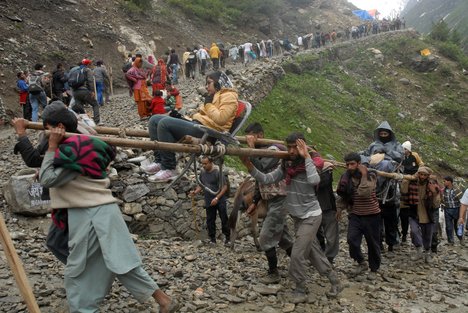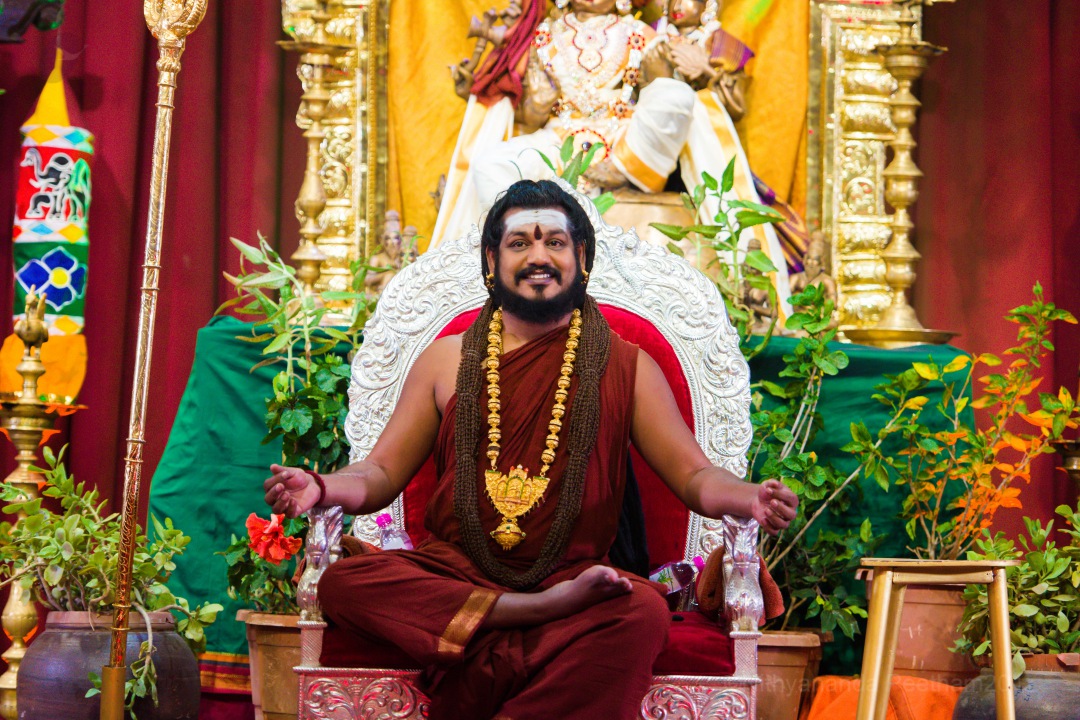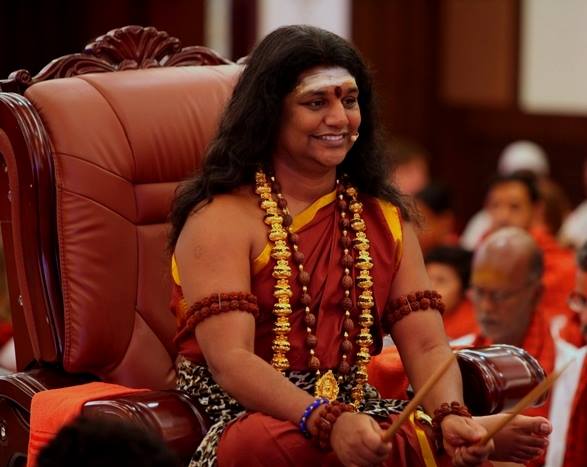The Song of God – Bhagavad Gita for World Today
This column shares excerpts from the commentary on Bhagavad Gita by enlightened master and rare living incarnation Paramahamsa Nithyananda. The intention is to highlight the eternal relevance of Bhagavad Gita in addressing challenges, issues and dilemmas faced by human beings in the present day.
Verses 1.8 to 1.12 of the Bhagavad Gita describe the scene of Duryodhana exhorting his army to protect his commander in chief – Bhishma – and Bhishma blowing his conch in support of these statements.
Two Ways to Live Life
Resist or Surrender – Choice is Yours
It is our constant conflict with Nature that leads to our suffering. If we learn to flow with Nature like the reeds in a river, we will always do the right thing.
There are two ways to live life. One is to avoid resisting the world and life as it is, what in Sanskrit is termed srsti drsti. The other way is to try to make circumstances evolve according to our viewpoint, called drsti srsti. The first attitude, one of non-resistance, brings happiness; the second, one of resistance, brings suffering. Resistance is an exercise doomed to encounter failure.
In this article, we will see how Bhishma and Duryodhana are examples of these two ways of living life.
Duryodhana Needs Support
Duryodhana was a coward by nature. He was especially afraid of Arjuna and Bhima who were physically stronger and more skilled than him. Therefore, he felt secure only when surrounded by his cronies. His strength and valour arose from the feeling of being supported by his clan and the army around him.
On the positive side, Duryodhana was an extremely generous friend who gave his all for someone he trusted. This quality had attracted strong men to him like Karna who swore undying loyalty. This made him claim that there were a number of great warriors who would willingly lay down their lives for him.
Duryodhana then began to boost his own morale by saying that the power of the Kaurava army led by Bhishma was immense, whereas the Pandava army with Bhima as one of the commanders was limited in power. His reference to Bhima alongside Bhishma was due to the fear of the oath that Bhima had taken – to break Duryodhana’s thigh and drink his blood to avenge the insult to Draupadi. Duryodhana knew that only Bhishma could protect him from Bhima.
Bhishma was the first Kaurava Commander-in-Chief and Duryodhana wanted to make sure that the entire Kaurava army was committed to his leadership. Duryodhana wanted to take no chances that his past hatred towards Bhishma would affect his assembled supporters. Duryodhana knew that he could not afford to antagonize Bhishma. Had it not been for his strong bonds of duty, Bhishma would have gone with the Pandava princes and Krishna. Duryodhana knew this.
From the above, we see that when one operates from ego, they are afflicted with worry and fear and they need support to thrive. Duryodhana gets this from:
- Comparison: the size of the armies
- Ability of others: the valour of others kings who are with him
- Track record of his commander-in-chief: Bhishma was undefeated
Bhishma Goes with the Flow
Bhishma was the grand sire and patriarch of the Pandava and Kaurava clan. He was born to Ganga as Devavrata. Bhishma was highly respected for his valour and sagacity. It is one of the greatest ironies of Mahabharata that wise men like Bhishma chose to be on Duryodhana’s side, knowing fully well that whatever path Duryodhana was following was morally incorrect.
In the highest spiritual sense, there is no right or wrong, morally. Everything is neutral. Bhishma was highly learned in the scriptural truths. Moreover, he was fully aware that Krishna was a divine incarnation. The very fact that Krishna sided with the Pandavas was a clear indication to him how the war would unfold. He had no fear about his own death and more importantly, he had no guilt about what he had embarked upon.
To a great warrior, dying on the battlefield was the duty of a kshatriya. What was more important to him was that he was rooted in the awareness of the present moment, carrying out his duty. His awareness transcended the moral rights and wrongs established by society and religion. He disapproved of Duryodhana instigating this war and yet took his side, knowing fully well that what lay ahead was destruction.
This was not foolishness or resignation. This was surrender to the inevitable, to the Divine. He allowed Nature to take its own course and allowed himself to be swept along with the tide. To relax and allow whatever happens to happen is the sure sign of an evolved spirit.
Only such a being can be compassionate and understand the desperate fears running through Duryodhana’s mind and felt the need to reassure him. Bhishma blew his conch as a sign of resounding affirmation of whatever had been said by Duryodhana.
Duryodhana was worried and fearful of life – resisting way of existence. Bhishma was avoiding any resistance and going with the flow of life.
All of us have this choice to make moment to moment. Choose wisely.
Source :Bhagavad Gita Demystified by Paramahamsa Nithyananda; p. 24 – 28
By – Satish Selvakumar











